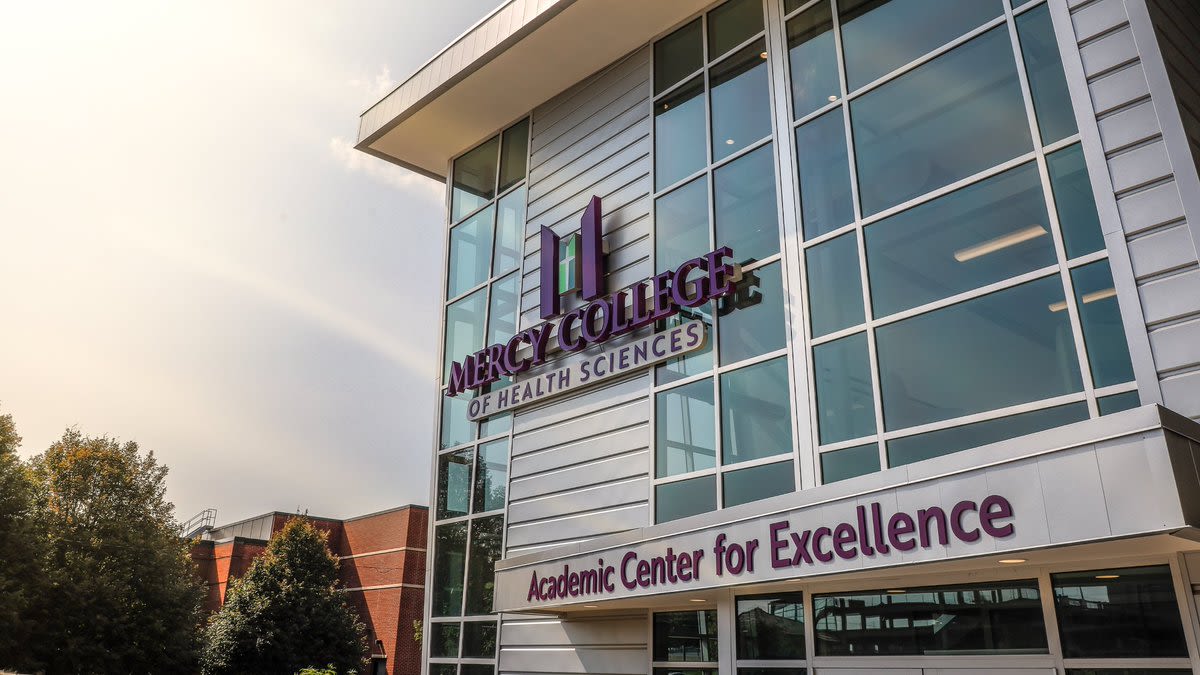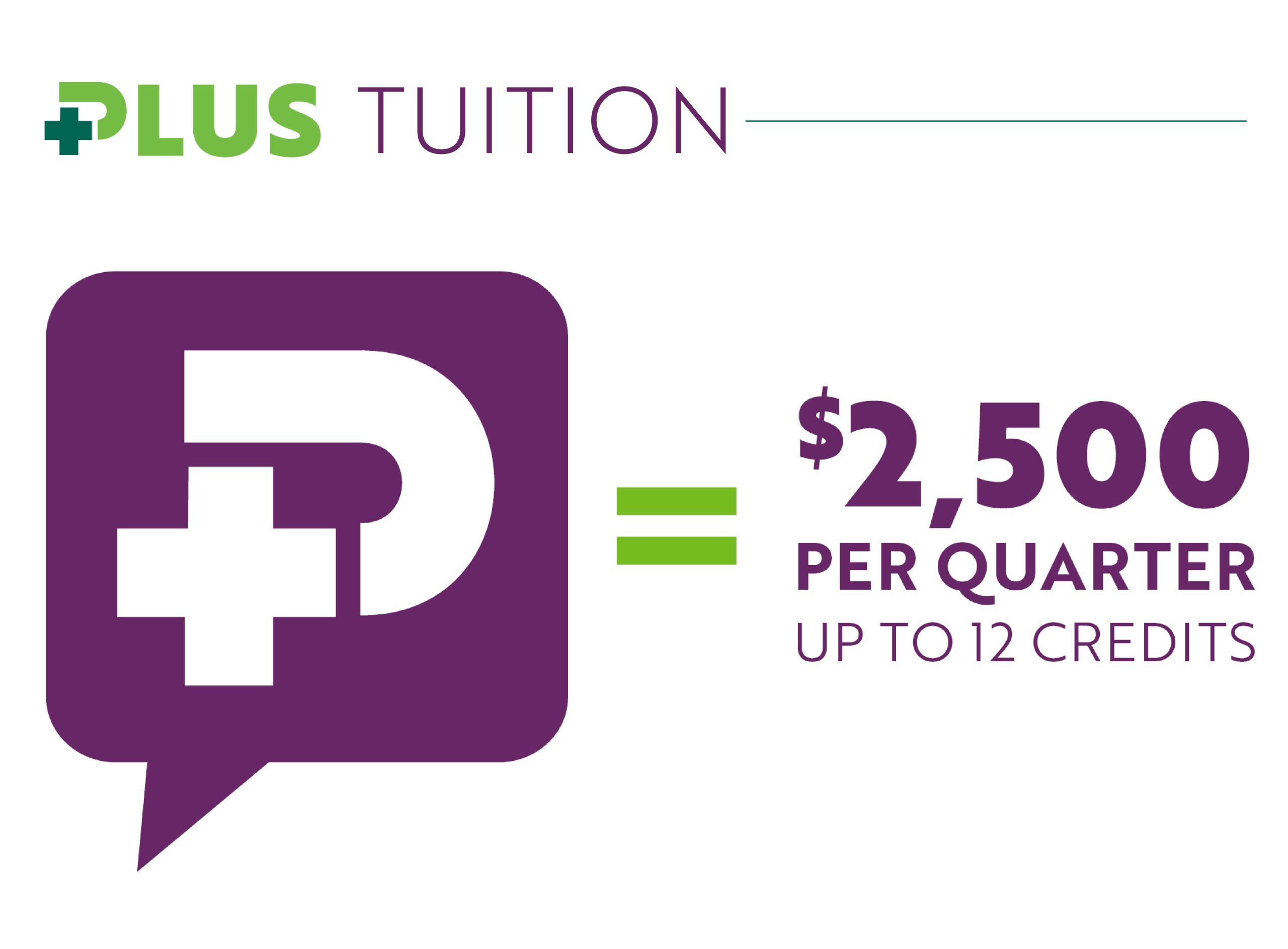Expanding Access to Healthcare Education
The Mercy College PLUS Story

With the rapid spread of the COVID-19 pandemic, the world’s healthcare industry has been thrust to the forefront of news headlines. Daily White House briefings prominently feature public health officials and respected medical experts. News media outlets report both heroic and tragic stories of frontline healthcare workers testing and treating patients. Markets swing up and down based on the latest reports of hopeful vaccine options and treatment test results.
Mercy College of Health Sciences is a health sciences specialty school with a 120+ year legacy located in downtown Des Moines, Iowa. MercyPLUS is an online extension of its degree offerings.
Mercy College of Health Sciences is a health sciences specialty school with a 120+ year legacy located in downtown Des Moines, Iowa. MercyPLUS is an online extension of its degree offerings.
In contrast to the chaos of this ever-evolving global crisis, Americans have spent weeks under stay-at-home decrees, isolated from family, friends, and work responsibilities, faced with plenty of extra time to think about the future. Workers have been laid off in record numbers, at least temporarily, from careers deemed “non-essential.” Many have used the time to reprioritize their goals and career aspirations. Some will begin looking for new careers that bring both opportunity and fulfillment.
The inevitable outcome? A surge of Americans motivated to make a difference by joining the ranks of the healthcare workforce. In a world that has already changed so much, however, many individuals are still at a loss as to where to start their careers, how to navigate the plethora of educational options available, and what kind of investment to expect in time, money, and energy.
The general public’s distrust of increasing educational costs has further complicated this decision for many Americans, and institutions of higher education have struggled to combat lower enrollment numbers in this time of crisis. Even demonstrating a unique value proposition can be challenging for some schools that are often overwhelmed in a crowded market.
A timely answer to the changing healthcare industry
While other institutions have found themselves struggling to keep up with the many changes the world faces daily, Mercy College of Health Sciences has found a way to address the needs this pandemic has made so apparent and embrace the new educational landscape it has created. The private Catholic college located in downtown Des Moines, Iowa, is led by a nimble, forward-thinking team of individuals who have identified an opportunity to leverage an affiliation with one of the nation’s largest healthcare systems in order to benefit students across the country.
As a result, the school recently announced the launch of Mercy College PLUS, an online extension of its existing health sciences education options.
“The vision behind MercyPLUS is to become the largest, most inclusive provider of online health sciences education in the United States,” said Mercy College of Health Sciences Executive Vice President and Chancellor of Operations for Mercy College PLUS Matt Romkey. “If you look across the higher education landscape, many institutions offer ‘one-off’ degrees in healthcare, but most don’t provide access to a wide variety of healthcare offerings. We see a unique opportunity to become a national leader with a comprehensive health sciences education that’s delivered online in a way that is affordable and accessible.”
Those may sound like pretty lofty goals for a school with a current enrollment of less than a thousand students, but the vision isn’t without merit. Mercy College of Health Sciences is affiliated with CommonSpirit Health, which was formed in 2019 through the alignment of Catholic Health Initiatives and Dignity Health into a single care ministry. CommonSpirit is a national leader in healthcare with care centers accessible to nearly one in four US residents. Through its relationship with CommonSpirit, Mercy College became affiliated with Dignity Health Global Education (DHGE), another company focused on healthcare workforce development. DHGE’s emphasis on healthcare training and online delivery provided the perfect complement to Mercy College’s accreditation credentials, forming a natural partnership to recognize MercyPLUS’s vision.
“This was a win-win for everyone,” explained Mercy College of Health Sciences President Doug Fiore, PhD.
“CommonSpirit has a need for healthcare workers — nurses, administrators, all kinds of positions across the country. Currently, they are spending millions of dollars on tuition reimbursement at numerous educational institutions. As two Catholic-affiliated institutions, we share missional values that foster the development of competent and compassionate healthcare professionals. We suggested they keep it in-house, and that’s when things started to fall together. Students win. Mercy College wins. CommonSpirit wins.”

MercyPLUS offers online education in accelerated formats with affordable tuition, a focus on accessibility, and a personalized student experience in accordance with Mercy College's legacy and mission.
MercyPLUS offers online education in accelerated formats with affordable tuition, a focus on accessibility, and a personalized student experience in accordance with Mercy College's legacy and mission.

Four healthcare program offerings are currently accepting enrollment through MercyPLUS, including medical assisting. Leadership at the school foresees opportunities to extend future educational offerings to include certificates, badges, short-term training, and certification exam preparation.
Four healthcare program offerings are currently accepting enrollment through MercyPLUS, including medical assisting. Leadership at the school foresees opportunities to extend future educational offerings to include certificates, badges, short-term training, and certification exam preparation.
Mission, values, history, and legacy guide education principles
What differentiates MercyPLUS from other online education programs is that it was established in keeping with Mercy College’s mission.
"MercyPLUS is every piece of Mercy College,” Fiore stated. “It’s our mission. It’s our values. It’s our history. It’s our legacy. We want to make sure we develop well-rounded graduates who will be successful healthcare practitioners, just as we have been doing for more than 120 years.”
Fiore and his administrative team determined early that the programs offered had to be focused on meeting current healthcare needs. As a result, MercyPLUS launched four degree programs: a Registered Nurse to Bachelor of Science in Nursing completion program (RN to BSN), a Bachelor of Science in Healthcare Administration, a Bachelor of Science in Public Health, and both a certificate and Associate of Science in Medical Assisting.
The plans for MercyPLUS do not stop there, Romkey explained. “The healthcare field is changing, and we need to adapt with it. There are opportunities beyond just degrees — things such as short-term certificates, badges, or certification exam preparation. We’re examining a wide portfolio of educational opportunities that run the gamut of a person’s professional career,” Romkey stated. “Our goal is that, as people start and progress in their healthcare careers, they continue to come back to us so we can help them re-skill or upskill. We will provide them the healthcare training, education, credentials, or degrees they need to continue to advance personally and professionally.”
Fiore agreed. “We want to make sure we’re not offering just another online program. We want it to be distinctive. We want curriculum that is developed by our expert faculty, in collaboration with industry leaders. Our affiliations enable us to engage with hospital leaders to embed positive characteristics they see in successful employees into our online education environment. As we expand our offerings, we do so in coordination with these same leaders. Our communities tell us what they need, and we figure out how to put it out there in a high quality way that fits our mission and legacy.”
Education through MercyPLUS is presented through a full suite of advanced online learning technologies. Students will be able to engage in a highly modern and social learning platform throughout their program, learn via simulations, and make use of DHGE’s digital credentialing infrastructure.
Creating the concierge admissions model from inquiry to graduation
MercyPLUS was formed to be an uncomplicated experience for students to ensure an easy transition to their chosen careers. As soon as students inquire about attending, they’re assigned an enrollment coach. The role of this position is to simplify the process of becoming a successful student as much as possible. Enrollment coaches are intended to support students individually throughout their entire time at MercyPLUS, working to remove any unnecessary barriers that may stand between individuals and their desired healthcare careers. At MercyPLUS, students are encouraged to focus on their studies. The enrollment coach ensures the student has every opportunity to do so successfully.
For example, an enrollment coach can help students determine how many and what kinds of credits transfer into the program, or how to map out a schedule that allows the student to graduate with a degree to fit within their financial, personal, and work-life schedules. They will even help students engage in other ancillary student support areas such as tutoring or counseling to ensure students don’t struggle navigating support services.
“This is one of the greatest benefits to support student success that we have created within MercyPLUS,” said Romkey. “The idea is that each student will have one point of contact from inquiry through graduation. Say, for example, that they’re expecting a child in the next six months, and they’re not sure how many credits to take — they’ll work with their enrollment coach to figure out the best option. When they have to pay their bill, manage their financial aid, or speak with a counselor or tutor, their enrollment coach will serve as their concierge, guiding them the entire time, so they can spend their time focusing on their studies without worrying about how to access our range of support services. We want to ensure students persist through graduation.”

MercyPLUS enrollment coaches are the primary points of contact for students, dedicated to ensuring students' success from their initial inquiries through graduation
MercyPLUS enrollment coaches are the primary points of contact for students, dedicated to ensuring students' success from their initial inquiries through graduation
Making online healthcare education accessible, affordable, and relevant
Anyone in higher education can attest that students are getting more financially savvy. They dread the prospect of a decade or more of climbing out of debt. MercyPLUS still offers a high-tech and high-touch education while addressing this fear through a steadfast dedication to remaining affordable and accessible to students. The PLUS Tuition is a no-surprise tuition model. It’s just $2,500 per quarter, for up to 12 credits, without any hidden fees or added online learning costs. This upfront approach enables students to plan for their futures while gaining access to high quality, accredited, online education at an affordable rate.
To ensure students meet their goals in a timely manner, MercyPLUS offers a generous credit transfer policy (up to 90 credits), a flat rate tuition rate ($2,500 per quarter), and accelerated programs.
To ensure students meet their goals in a timely manner, MercyPLUS offers a generous credit transfer policy (up to 90 credits), a flat rate tuition rate ($2,500 per quarter), and accelerated programs.
Additionally, MercyPLUS offers four start dates per year, enabling students to accelerate their education. Degrees that would typically take two years of schooling at another institution can be completed in as little as one year at MercyPLUS. This enables graduates to transition into their careers and begin earning an income sooner, with the credentials needed for a higher earning potential. MercyPLUS also provides a generous credit transfer program that enables students to lighten their credit loads and financial costs while they progress toward their degrees.
“We understand students come to us with various educational and life experiences,” Fiore stated. “No two paths are the same, and we recognize this through our generous credit acceptance at MercyPLUS. Nobody should be told their life or educational experience can’t be translated toward advancing their career. What we’re building is a great offering for students who want to make a difference in the world,” Fiore continued. “We’re making education accessible. With the services we have, students can decide for themselves how personal or transactional they want their experience to be. We give them the tools they need to be successful, but they control their futures.”
While MercyPLUS’s commitment to keeping online education affordable and accessible would be considered commendable in the best of times, it has become crucial in the face of the current pandemic crisis affecting millions across the globe. High quality institutions, capable of navigating the ever-evolving social, educational, and professional landscapes, have become essential beacons to thousands of individuals faced with uncertain futures. With the recent launch of MercyPLUS, Mercy College has firmly established itself as a national leader in the next generation of healthcare education.




